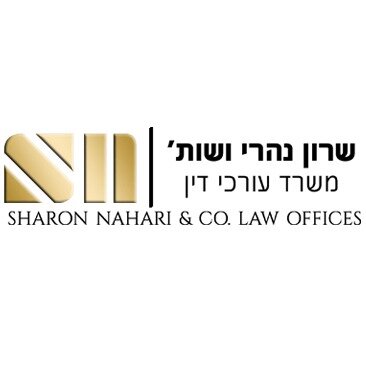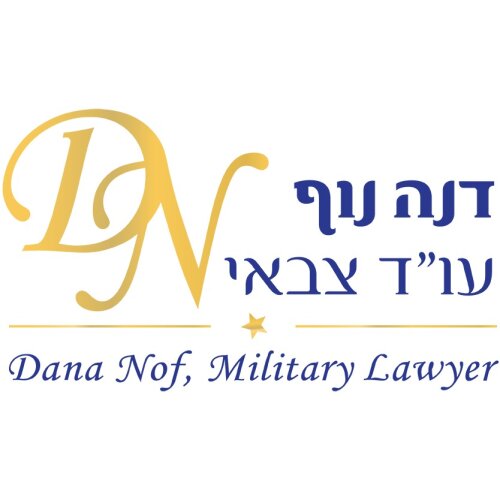Best Criminal Litigation Lawyers in Tel Aviv
Share your needs with us, get contacted by law firms.
Free. Takes 2 min.
List of the best lawyers in Tel Aviv, Israel
About Criminal Litigation Law in Tel Aviv, Israel
Criminal litigation in Tel Aviv, Israel involves the prosecution and defense of individuals accused of committing crimes. This encompasses a broad range of activities, from minor infractions like petty theft to serious offenses such as violent crimes or fraud. The Criminal Code of Israel and related legal statutes establish the framework for what constitutes a criminal act and the procedures for addressing criminal cases in the courts. Lawyers specializing in criminal litigation work within this framework to defend their clients, ensure fair trials, and uphold justice.
Why You May Need a Lawyer
There are several situations where you might require the assistance of a criminal litigation lawyer in Tel Aviv, including:
- Being accused of a crime and needing defense representation.
- Facing arrest or police investigation and requiring legal advice.
- Receiving court summons related to a criminal matter.
- Exploring plea bargaining opportunities to potentially reduce sentencing.
- Seeking to appeal a criminal conviction or sentencing.
- Pursuing justice as a victim of a crime, where legal representation may help in addressing the issue.
- Comprehending complex legal terms, rights, and obligations under criminal law.
Local Laws Overview
There are several key aspects of local laws in Tel Aviv that are particularly relevant to criminal litigation, including:
- The Israeli Penal Code: Establishes various criminal offenses and their corresponding penalties.
- The Code of Criminal Procedure: Outlines the processes for criminal investigations, detentions, court procedures, and appeals.
- Rights of the Accused: Includes rights to legal representation, to remain silent, and to a fair trial, among others.
- Arrest and Detention Laws: Govern the conditions and procedures under which individuals can be detained by the police.
- Evidence Law: Dictates what evidence can be admitted in court and how it must be handled.
Frequently Asked Questions
What should I do if I am arrested in Tel Aviv?
If you are arrested, you should exercise your right to remain silent and request to speak to a lawyer as soon as possible. This will ensure your rights are protected throughout the process.
Can I represent myself in a criminal case?
While self-representation is technically possible, it is highly discouraged due to the complexity of criminal law. An experienced lawyer will be able to navigate the legal system more effectively.
What are my rights during a police investigation?
Key rights include the right to remain silent, the right to avoid self-incrimination, and the right to consult with a lawyer. You should invoke these rights whenever necessary.
How long can I be detained without being charged?
Under Israeli law, an individual can typically be detained for up to 24 hours without charges, but detention can be extended by a court order under certain circumstances.
What is plea bargaining?
Plea bargaining is a process where the accused and the prosecution may negotiate a mutually acceptable resolution, often involving a guilty plea to a lesser charge in exchange for a lighter sentence.
How do appeals work in criminal cases?
If you are convicted of a crime, you have the right to appeal the conviction or sentence. The appeal process involves submitting a case to a higher court for review of the initial decision.
What types of penalties can be imposed if convicted?
Penalties can range from fines and community service to imprisonment or even life sentences, depending on the nature and severity of the crime.
Is a criminal record permanent?
Your criminal record is permanent, but under certain conditions, it may be expunged or sealed. Consultation with a lawyer can provide specific guidance based on your case.
Can a minor be tried as an adult?
In Israel, minors typically face different courts and procedures than adults. However, in cases of serious crimes, a minor may be tried as an adult.
What do I need to prepare for my first meeting with a lawyer?
Bring all relevant documents, such as police reports, court summons, and any correspondence related to your case. Be ready to provide a complete account of the events to help your lawyer understand your situation fully.
Additional Resources
For more information, you can consult the following resources and organizations:
- The Israeli Bar Association: Provides directories and resources for finding qualified lawyers.
- The Ministry of Justice: Offers legal information and resources related to criminal law.
- The Tel Aviv District Court: Handles criminal cases and can provide procedural guidance.
- Public Defender’s Office: Offers legal representation for those who cannot afford private lawyers.
Next Steps
If you require legal assistance in criminal litigation, here are the steps to follow:
- Contact a qualified criminal litigation lawyer for a consultation. Use directories from the Israeli Bar Association or recommendations from trusted sources.
- Prepare all pertinent documents and information related to your case to facilitate an effective consultation.
- Discuss your situation openly and honestly with your lawyer, ensuring they have all necessary details to provide you with the best representation.
- Follow your lawyer’s advice and be proactive in gathering any additional information or documentation they may need.
- Keep informed about your case and stay in regular communication with your legal representative to stay updated on proceedings and developments.
Remember, navigating the legal system can be complex, but with the right legal support, you can protect your rights and seek a fair outcome in your case.
Lawzana helps you find the best lawyers and law firms in Tel Aviv through a curated and pre-screened list of qualified legal professionals. Our platform offers rankings and detailed profiles of attorneys and law firms, allowing you to compare based on practice areas, including Criminal Litigation, experience, and client feedback.
Each profile includes a description of the firm's areas of practice, client reviews, team members and partners, year of establishment, spoken languages, office locations, contact information, social media presence, and any published articles or resources. Most firms on our platform speak English and are experienced in both local and international legal matters.
Get a quote from top-rated law firms in Tel Aviv, Israel — quickly, securely, and without unnecessary hassle.
Disclaimer:
The information provided on this page is for general informational purposes only and does not constitute legal advice. While we strive to ensure the accuracy and relevance of the content, legal information may change over time, and interpretations of the law can vary. You should always consult with a qualified legal professional for advice specific to your situation.
We disclaim all liability for actions taken or not taken based on the content of this page. If you believe any information is incorrect or outdated, please contact us, and we will review and update it where appropriate.











